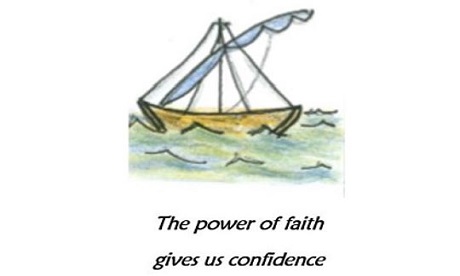
Pastor’s Desk

A short while ago, Fr Joe and I were chatting about the world where we find ourselves and the ‘conflict’ between secular liberal democracy and Christian beliefs.
What should the state’s role be, and how does the church respond or fit in?
While the values underpinning the state are supposed to descend from our Judeo-Christian beliefs and ideals, what happens when the state passes legislation that purloins the values on which we base our beliefs?
Whilst I passed the comment that trying to enforce one’s beliefs on other people was, from a historical perspective, doomed to fail – we did not address the very question of how we live a Christian life within the overarching umbrella of what is an ‘oppressive’ secular world. Fr Joe suggested I might like to write a piece for the newsletter. So here are some brief thoughts – but alas, no answers.
History has shown us that the “rule of the saints” (Cromwellian England), a theocracy (Iran 2022), prohibition (US in 1920s) and today with “the war on drugs”; have either failed or are fighting losing battles. The reality is we live in a world in which a secular (separation of church and state) society exists. This separation is something I applaud as it gives me the freedom to worship as I see fit without being constrained by a state church or the apparatus of the state. However, at the same time, I see laws being passed and courts challenging some of my fundamental Christian beliefs.
So, it does raise the very issue of how do we, as Christians, react to laws that the state passes which are contrary to our very beliefs? Do we react by “Rendering unto Caesar the things that are Caesar’s, and unto God the things that are God’s” (Matthew 22:21).
Whilst this verse has become widely quoted as a summary of the relationship between Christianity, secular government, and society, it must be noted the original message came in response to a question of whether it was lawful for Jews to pay taxes to Caesar. It, perhaps, does not address moral and ethical issues that we confront daily.
Yes, the Holy Father’s encyclicals and the New Zealand Bishop’s conference statements do provide guidance, but how do we put them into practice daily?
While I am a strong supporter of liberal democracy and the separation of the church, how do you answer questions such as the one posed to me by a politician who said, “how can I vote for something that I personally do not believe in?” But yet, are we able to impose our beliefs on those that do not accept them?
Perhaps, the second to last word should go to Fr Joe, who, in his book, ‘Catholics. Prayer, belief and diversity in a secular context’ wrote; “Instead, it is better to see the secular world as the world of the Gospel, the place where God is found and celebrated in the concrete actions of love, compassion, and mercy. The secular world is the place where believers give to others, and love others as they would want to be loved themselves, and the sacred world is the frame of this world that gives love, compassion, mercy and belief in life a presence. In the end, the secular and sacred worlds must become one world so that the contemporary Catholic person can live as a theological person who is also a sociological person” (p 162-63).
Or as the holy scripture says, “And this is love, that we should walk after his commandment, even as ye heard from the beginning, that ye should walk in it. 2 John 1:6.


